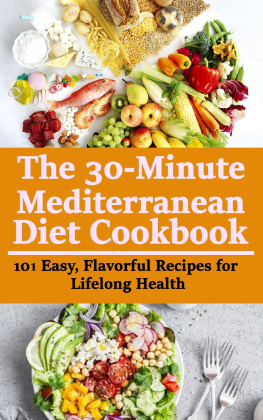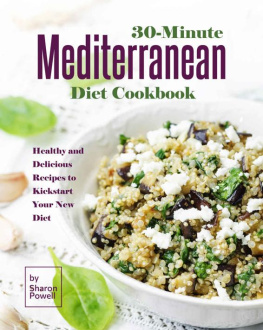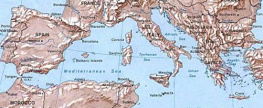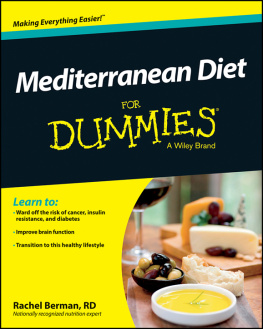


Table of Contents
Scrambled Eggs with Bell Peppers, Onions, and Cheddar Cheese
Veggie frittata with bell peppers, onions, and mushrooms
Smoothie Bowl with Almond Milk, Banana, Spinach, and Almond Butter
Smoothie bowl with Almond Milk, Banana, Spinach, and Peanut Butter
Smoothie bowl with almond milk, banana, spinach, and honey
Oatmeal with Almond Milk, Chopped Nuts, and Dried Fruit
Chapter 2: Whole Grain Recipes
Grilled Chicken Breast with Roasted Root Vegetables
Spicy Chicken Tortilla Soup
Conclusion
Introduction To The Mediterranean Diet
What's The Mediterranean Diet?
The Mediterranean diet is a dietary pattern that is based on the traditional cuisine and eating habits of the people living in the Mediterranean area, including countries like Greece, Italy, and Spain. This diet is defined by its focus on whole, unprocessed foods, such as fruits, vegetables, whole grains, legumes, nuts, and olive oil, as well as modest portions of fish, chicken, dairy, and red meat. The Mediterranean diet is generally acknowledged as one of the healthiest diets in the world, and it has been connected with several health advantages.
Origins of the Mediterranean Diet
The Mediterranean diet has its origins in the traditional meals and habits of the people living in the Mediterranean area. The eating pattern of these people has been impacted by a multitude of variables, including their climate, geography, and cultural background. In the 1940s, American scientist Ancel Keys did research on the food patterns of individuals living in the Mediterranean area and discovered that they had a substantially lower risk of heart disease and other chronic health disorders than those in other regions of the globe. This finding prompted him to ascribe the difference to the Mediterranean diet, which was high in fruits, vegetables, whole grains, legumes, nuts, and olive oil, and low in animal products and processed foods.
Components of the Mediterranean Diet
The Mediterranean diet is centered on the intake of complete, unprocessed foods that are high in fiber, vitamins, minerals, and antioxidants. The cornerstone of the diet is plant-based foods, such as fruits, vegetables, whole grains, and legumes, which make up the bulk of the diet. These meals are considered to help lessen the risk of chronic health issues including heart disease and some forms of cancer. Additionally, the diet also contains moderate quantities of fish, poultry, and dairy products, as well as minor amounts of red meat and sweets.
One of the essential components of the Mediterranean diet is olive oil, which is high in monounsaturated fatty acids and antioxidants. This oil is used in lieu of other oils and fats, such as butter and margarine, and it is claimed to help decrease cholesterol levels and lessen the risk of heart disease. The diet also contains lots of herbs, spices, and seasonings, which are used to improve the taste of dishes and make them more delightful to consume.
Another essential component of the Mediterranean diet is the lifestyle that it fosters. People following this diet are urged to eat slowly, taste their food, and enjoy meals with friends and family. Additionally, physical exercise is promoted, and many individuals living in the Mediterranean area enjoy outdoor activities like walking, cycling, and swimming.
Health Benefits of the Mediterranean Diet
The Mediterranean diet has been connected with several health advantages, including:
Reduced Risk of Heart Disease: The Mediterranean diet has been demonstrated to help decrease cholesterol levels and reduce the risk of heart disease.














